
0
+
Google Reviews

0
+
4.4 (2178 Ratings)
PL/SQL (Procedural Language/Structured Query Language) is a powerful programming language extension for SQL (Structured Query Language) used in Oracle Database systems and compatible databases. It allows developers and database administrators to create, manage, and execute procedural code within the database environment. PL/SQL is a versatile and integral part of Oracle Database systems, allowing developers to build sophisticated applications and automate database tasks while maintaining data security and integrity.


Curriculum Designed by Experts
Oracle PLSQL /PLSQL Basic :
1] Introduction to Oracle PLSQL
2] Declaration PLSQL Variables
3] Writing Executable Statement
4] Interacting with Oracle Server
5] Writing Control Structure
6] Working with Composite Data Type
7] Cursor
8] Handling Exception
9] Introduction to Stored Procedure & Function
PLSQL Advanced :
10] Creating Stored Procedures
11] Creating Stored Functions
12] Introduction to Collection
13] Creating Packages
14] Advancement on Package Concept
15] Design Consideration for PLSQL Code
16] Creating Triggers
17] Application for Triggers
18] Project Work
Mastering PL/SQL opens doors to high-demand roles in database management. A PLSQL Course equips you with essential skills like writing efficient queries, managing data, automating processes, and optimizing database performance. Enroll in PLSQL Course Certification with Training today to boost your career!
PLSQL Course Training opens doors to rewarding roles like Database Administrator, Data Analyst, and Developer. Master query writing, data management, automation, and performance tuning. Enroll in PLSQL Course Certification with Training to accelerate your career in high-demand database roles today!
Cloud adoption is rapidly transforming the landscape of database management. PLSQL skills are essential for efficiently managing and optimizing cloud-based databases. A PLSQL Course Certification with Training equips you to write optimized queries, automate processes,and seamlessly handle cloud environments. Enroll today to ensure that cloud-based database management is a viable career path for you!
PLSQL offers unmatched scalability and flexibility, making it a vital tool for handling growing and dynamic databases. A PLSQL Course Certification with Training equips you to write efficient, adaptable queries, manage complex data structures, and optimize performance. Enroll today to boost your skills in scalable database solutions and future-proof your career!
A key component of cost management is PLSQL, whichoptimizing database operations and reducing resource use.A PLSQL Course Certification with Training teaches efficientquery writing and automation to minimize costs.Enroll today to enhance your skills incost-effective database management solutions!
PLSQL enhances security and compliance in database management by enforcing access controls and data integrity. A PLSQL Course Certification with Training equips you with the skills to write secure queries, protect data, and ensure compliance. Enroll today to advance your expertise in secure database solutions!
Radical Technologies is the leading IT certification institute in Pune, offering a wide range of globally recognized certifications across various domains. With expert trainers and comprehensive course materials, it ensures that students gain in-depth knowledge and hands-on experience to excel in their careers. The institute’s certification programs are tailored to meet industry standards, helping professionals enhance their skillsets and boost their career prospects. From cloud technologies to data science, Radical Technologies covers it all, empowering individuals to stay ahead in the ever-evolving tech landscape. Achieve your professional goals with certifications that matter.
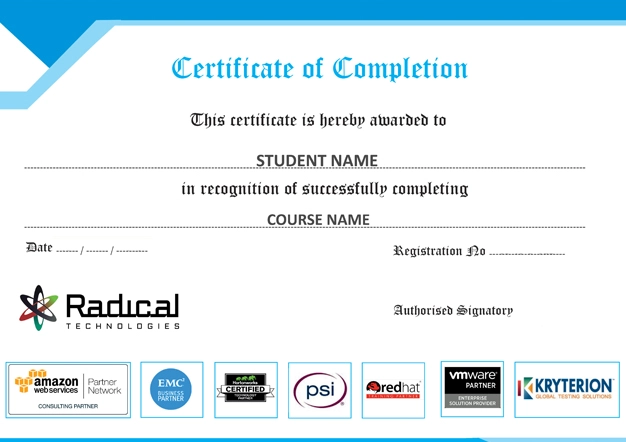


At Radical Technologies, we are committed to your success beyond the classroom. Our 100% Job Assistance program ensures that you are not only equipped with industry-relevant skills but also guided through the job placement process. With personalized resume building, interview preparation, and access to our extensive network of hiring partners, we help you take the next step confidently into your IT career. Join us and let your journey to a successful future begin with the right support.
At Radical Technologies, we ensure you’re ready to shine in any interview. Our comprehensive Interview Preparation program includes mock interviews, expert feedback, and tailored coaching sessions to build your confidence. Learn how to effectively communicate your skills, handle technical questions, and make a lasting impression on potential employers. With our guidance, you’ll walk into your interviews prepared and poised for success.
At Radical Technologies, we believe that a strong professional profile is key to standing out in the competitive IT industry. Our Profile Building services are designed to highlight your unique skills and experiences, crafting a resume and LinkedIn profile that resonate with employers. From tailored advice on showcasing your strengths to tips on optimizing your online presence, we provide the tools you need to make a lasting impression. Let us help you build a profile that opens doors to your dream career.

Infrastructure Provisioning
Implementing automated infrastructure provisioning and configuration management using Ansible. This may include setting up servers, networking devices, and other infrastructure components using playbooks and roles.

Applications Deployment
Automating the deployment and orchestration of applications across development, testing, and production environments. This could involve deploying web servers, databases. middleware, and other application components using Ansible

Continuous Integration
Integrating Ansible into CI/CD pipelines to automate software. build, test, and deployment processes. This may include automating the creation of build artifacts, running tests, and deploying applications to various environments.

The PL SQL Course at Radical Technologies was outstanding. The trainers were knowledgeable, and the practical sessions helped me understand complex concepts easily.
I highly recommend Radical Technologies for PL SQL Developer Training. The course content is comprehensive, and the online classes were convenient and interactive.
The Oracle PL SQL Online Training at Radical Technologies was perfect for my busy schedule. The instructors were supportive, and the materials provided were top-notch.
Completing the PL SQL Developer Course at Radical Technologies has significantly boosted my career. The hands-on experience and expert guidance were invaluable.
Radical Technologies offers the best PLSQL Certification program. The training was thorough, and I felt well-prepared for my certification exam.
The PLSQL Classes in Pune at Radical Technologies exceeded my expectations. The trainers were experienced, and the course structure was very well organized.
I benefited greatly from the SQL and PL SQL Course at Radical Technologies. The practical examples and real-world applications made the learning process engaging.
Radical Technologies’ PL SQL Training Online allowed me to learn at my own pace. The instructors were always available to clarify doubts, making it an excellent learning experience.
The PLSQL Full Course provided by Radical Technologies was comprehensive and detailed. I now feel confident in my PL SQL skills and ready for new challenges.
Radical Technologies’ Advanced PL SQL Course was exactly what I needed to advance my career. The course content was in-depth and covered all necessary aspects.
The flexibility of the PL SQL Online Course at Radical Technologies made it easy to balance my studies with work. The quality of the training was exceptional.
I chose Radical Technologies for their reputation, and they did not disappoint. The Oracle PL SQL Course was well-structured, and the trainers were industry experts.
The PL SQL Certification Online course at Radical Technologies prepared me thoroughly for the certification exam. The practice tests and study materials were very helpful.
Radical Technologies provided excellent PL SQL Classes Near Me. The in-person training sessions were interactive, and the instructors were very knowledgeable.
Joining the Oracle PL SQL Corporate Training at Radical Technologies was a great decision for our team. The training improved our skills and productivity significantly.








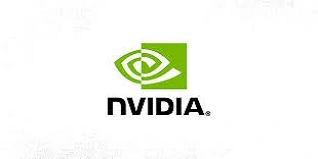
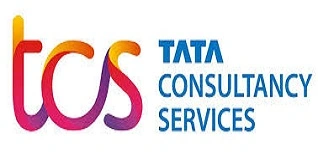




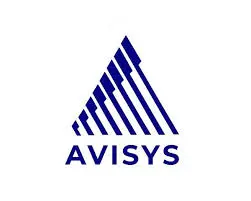
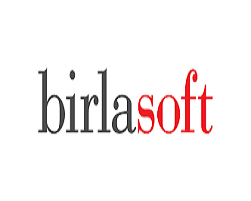




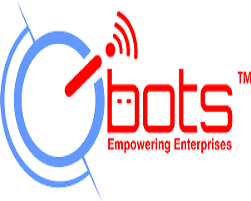




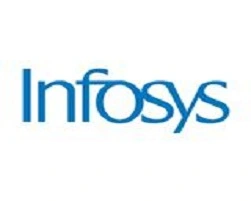
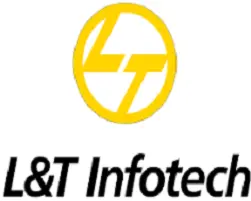
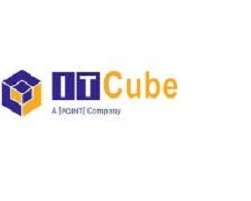

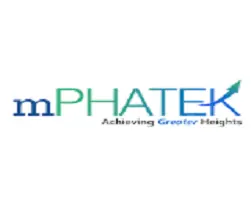
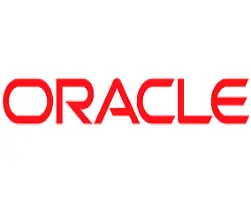






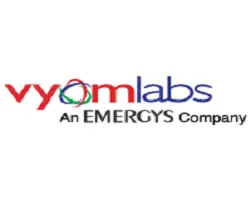
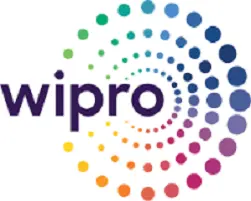
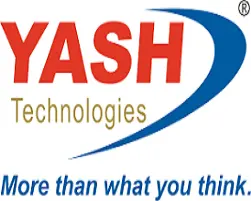
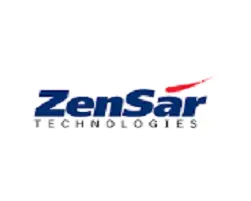
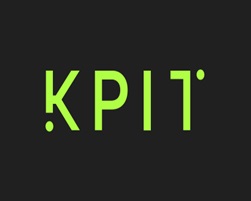

The PL SQL Course Duration at Radical Technologies typically ranges from 6 to 10 weeks, depending on the specific course structure and whether you opt for full-time or part-time learning.
Yes, Radical Technologies offers comprehensive Oracle SQL PLSQL Online Training. Our online courses provide the same in-depth content and interactive learning experience as our in-person classes, allowing you to study from anywhere.
The PLSQL Full Course covers a wide range of topics including PL SQL basics, control structures, cursors, exception handling, stored procedures, functions, packages, triggers, and advanced PL SQL features like collections and bulk operations.
Yes, upon successful completion of the Oracle PL SQL Course, you will receive a certification from Radical Technologies. This certification is recognized across the industry and enhances your professional credentials.
Absolutely! Radical Technologies offers PL SQL Developer Training Online, providing flexible scheduling options and interactive online sessions to accommodate your learning preferences.
While there are no strict prerequisites, a basic understanding of SQL and database concepts is recommended. Our introductory modules will help bridge any knowledge gaps to ensure you’re well-prepared for the course.
Yes, Radical Technologies offers Oracle PL SQL Corporate Training tailored to meet the specific needs of organizations. Our corporate training programs are designed to enhance the skills of your team and improve overall productivity.
The PL SQL Online Training at Radical Technologies includes live interactive sessions, recorded lectures, practical exercises, and access to a dedicated online learning platform. You can participate in real-time or review materials at your own pace.
Radical Technologies is renowned for its expert trainers, comprehensive course content, flexible learning options, and strong industry connections. Our focus on practical, hands-on learning ensures you gain valuable skills that are immediately applicable.
Yes, Radical Technologies offers job placement assistance to students who successfully complete the PL SQL Certification Course. Our dedicated placement cell works with leading companies to help you find suitable job opportunities.
Ambegaon Budruk | Aundh | Baner | Bavdhan Khurd | Bavdhan Budruk | Balewadi | Shivajinagar | Bibvewadi | Bhugaon | Bhukum | Dhankawadi | Dhanori | Dhayari | Erandwane | Fursungi | Ghorpadi | Hadapsar | Hingne Khurd | Karve Nagar | Kalas | Katraj | Khadki | Kharadi | Kondhwa | Koregaon Park | Kothrud | Lohagaon | Manjri | Markal | Mohammed Wadi | Mundhwa | Nanded | Parvati (Parvati Hill) | Panmala | Pashan | Pirangut | Shivane | Sus | Undri | Vishrantwadi | Vitthalwadi | Vadgaon Khurd | Vadgaon Budruk | Vadgaon Sheri | Wagholi | Wanwadi | Warje | Yerwada | Akurdi | Bhosari | Chakan | Charholi Budruk | Chikhli | Chimbali | Chinchwad | Dapodi | Dehu Road | Dighi | Dudulgaon | Hinjawadi | Kalewadi | Kasarwadi | Maan | Moshi | Phugewadi | Pimple Gurav | Pimple Nilakh | Pimple Saudagar | Pimpri | Ravet | Rahatani | Sangvi | Talawade | Tathawade | Thergaon | Wakad
I had an amazing experience with this service. The team was incredibly supportive and attentive to my needs. The quality of the work exceeded my expectations. I would highly recommend this to anyone looking for reliable and professional service."
I had an amazing experience with this service. The team was incredibly supportive and attentive to my needs. The quality of the work exceeded my expectations. I would highly recommend this to anyone looking for reliable and professional service."
I had an amazing experience with this service. The team was incredibly supportive and attentive to my needs. The quality of the work exceeded my expectations. I would highly recommend this to anyone looking for reliable and professional service."
I had an amazing experience with this service. The team was incredibly supportive and attentive to my needs. The quality of the work exceeded my expectations. I would highly recommend this to anyone looking for reliable and professional service."
I had an amazing experience with this service. The team was incredibly supportive and attentive to my needs. The quality of the work exceeded my expectations. I would highly recommend this to anyone looking for reliable and professional service."
The Advanced PL/SQL Certification is a specialized program designed for IT professionals, developers, and database administrators looking to deepen their expertise in Oracle’s procedural language, PL/SQL. This comprehensive course enables participants to master advanced techniques, tools, and methodologies required to optimize the performance and functionality of Oracle databases.
By enrolling in this certification, learners gain in-depth knowledge of PL/SQL, which is crucial for building efficient, robust, and scalable database applications. It also covers essential topics like performance tuning, advanced data types, collections, dynamic SQL, and much more. This course is ideal for those who already have a foundational understanding of SQL and PL/SQL and are looking to advance their skills.
This certification is ideal for:
Before enrolling in the Advanced PL/SQL Certification course, participants should have:
Salesforce Testing plays a critical role in ensuring the smooth functioning of Salesforce applications across various industries. As Salesforce is highly customizable and widely used for managing customer relationships, its performance and functionality must be tested thoroughly. Salesforce testing ensures that all customizations, integrations, and workflows meet business requirements and function as expected.
Advanced PL/SQL (Procedural Language for SQL) is a powerful tool in the realm of Oracle databases, enabling developers and database administrators to create efficient, secure, and scalable applications. With its procedural capabilities built on top of SQL, PL/SQL allows for the development of complex programming logic, making it an essential component in various enterprise-level applications. Here are some key applications of Advanced PL/SQL:
1. Developing Complex Business Logic
Advanced PL/SQL is widely used to implement complex business rules and logic within Oracle databases. By using features such as triggers, packages, procedures, and functions, developers can automate workflows, enforce data validation, and handle sophisticated logic directly at the database level. This improves efficiency by centralizing the logic within the database, reducing the need for external application layers.
2. Automating Database Operations
One of the most common applications of Advanced PL/SQL is in automating routine database operations. This includes tasks such as data backups, batch processing, system monitoring, and maintenance. PL/SQL programs can be scheduled to run automatically using Oracle’s built-in job scheduler, making it easy to manage repetitive tasks without manual intervention.
3. Performance Tuning and Query Optimization
Advanced PL/SQL provides tools for optimizing the performance of database queries and procedures. Techniques such as bulk collection and bulk binding allow for the efficient handling of large datasets, reducing the number of context switches between the SQL and PL/SQL engines. Additionally, PL/SQL’s advanced error-handling mechanisms ensure smooth execution of complex queries, improving overall application performance.
4. Data Manipulation and Reporting
PL/SQL is widely used for manipulating large datasets in an efficient manner. With the help of cursors, collections, and dynamic SQL, developers can create sophisticated reports by aggregating, filtering, and transforming data as per business requirements. This is especially useful in data-driven applications, where frequent data extraction and transformation are required.
5. Building Secure Database Applications
Advanced PL/SQL supports strong security features, enabling developers to build secure database applications. With tools such as invoker’s rights and definer’s rights, developers can control who has access to specific pieces of code and data. This allows organizations to implement fine-grained security policies within their PL/SQL applications, ensuring that sensitive data is protected from unauthorized access.
6. Integration with Oracle Forms and Reports
PL/SQL is extensively used in Oracle Forms and Oracle Reports, which are key components of Oracle’s application development suite. Advanced PL/SQL code can be embedded into forms to enhance functionality, such as enabling complex validations, controlling form behavior, and automating processes. Similarly, Oracle Reports can leverage PL/SQL to generate custom reports and manipulate data before displaying it to the user.
7. Creating and Managing Triggers
Advanced PL/SQL enables the creation of database triggers, which are essential for automatically responding to specific changes in the database, such as inserts, updates, or deletes. Triggers are commonly used for enforcing business rules, maintaining audit trails, synchronizing data between tables, and preventing unauthorized changes. By utilizing PL/SQL, complex logic can be implemented within triggers to handle intricate business requirements efficiently.
8. Building Web Applications Using Oracle APEX
Oracle Application Express (APEX) is a web application development platform that integrates seamlessly with Oracle databases. PL/SQL plays a crucial role in APEX, where developers can use it to process forms, manage session states, validate user inputs, and implement dynamic actions. Advanced PL/SQL enhances the capabilities of APEX applications by providing a powerful backend for managing and manipulating data in real-time.
9. Data Migration and ETL (Extract, Transform, Load) Processes
Advanced PL/SQL is a key tool for data migration and ETL processes in Oracle environments. It enables efficient extraction, transformation, and loading of data across different database systems. With its ability to handle large volumes of data through bulk operations, PL/SQL makes it possible to design robust ETL processes that ensure data accuracy and integrity during migration or integration activities.
10. Creating Reusable Code with Packages and Libraries
In large enterprise applications, it’s essential to create reusable and maintainable code. Advanced PL/SQL supports the creation of packages, which are collections of related procedures, functions, and other elements. Packages allow developers to encapsulate related logic into modules, improving code organization and reusability across multiple applications. This modular approach simplifies application maintenance and enhances collaboration among development teams.
11. Data Validation and Error Handling
PL/SQL is frequently used to validate data before it’s committed to the database. With its advanced exception-handling mechanisms, PL/SQL ensures that invalid data is caught and handled properly. This is critical in ensuring data integrity and consistency across large and complex databases. By using PL/SQL to define validation rules, developers can minimize errors and prevent the insertion of incorrect data into the database.
12. Developing Financial and ERP Applications
Many financial and enterprise resource planning (ERP) applications rely on Oracle databases for their backend processing. Advanced PL/SQL is often used in these systems to handle complex financial calculations, automate transaction processing, generate financial reports, and enforce business rules. Its ability to handle large datasets and execute complex logic makes it ideal for managing financial data with high accuracy and performance.
13. Building Custom APIs for Application Integration
PL/SQL can be used to build custom APIs (Application Programming Interfaces) that allow Oracle databases to interact with external applications. These APIs facilitate data exchange between Oracle and other systems, ensuring seamless integration in multi-platform environments. This is particularly useful for organizations that rely on a mix of legacy systems and modern applications and need a unified database management approach.
14. Handling Bulk Data Processing
Advanced PL/SQL is especially effective in handling bulk data processing tasks. Techniques such as bulk collect and bulk bind enable developers to process large volumes of data efficiently, reducing the overhead associated with row-by-row processing. This is critical in data-intensive applications where performance and scalability are key.
Welcome to Radical Technologies, Pune’s premier institute for comprehensive PL SQL Full Course and training with certifications. We are dedicated to providing the highest quality Oracle PLSQL Developer Training, designed to help you become proficient in PL SQL development and advance your career.
Our PL SQL Course is meticulously structured to cover all essential aspects of PL SQL programming. Whether you’re looking for PLSQL Classes in Pune or PL SQL Classes Near Me, Radical Technologies offers a range of flexible learning options. Our expert-led Oracle SQL PLSQL Online Training ensures that you can gain valuable skills from the comfort of your home.
We pride ourselves on offering the Best PLSQL Certification programs that are recognized across the industry. Our PLSQL Online Course and PL SQL Online Training are tailored to meet the needs of both beginners and advanced learners. With our comprehensive PL SQL Developer Course, you will master the intricacies of Oracle PL SQL, preparing you for real-world challenges.
Radical Technologies provides top-notch Oracle PL SQL Training, including PLSQL Training Online and in-person PL SQL Classes in Pune. Our curriculum includes foundational concepts as well as advanced topics, making it the Best PL SQL Course available. We also offer specialized PL SQL Training Near Me to cater to local learners looking for high-quality instruction.
Our PL SQL Course Duration is designed to fit your schedule, with both intensive and extended options available. We offer a complete suite of SQL and PL SQL Courses, ensuring you have a well-rounded understanding of database programming. Our Oracle PL SQL Online Training is perfect for those who prefer a flexible learning environment.
In addition to individual training, Radical Technologies excels in Oracle PL SQL Corporate Training, helping organizations upskill their workforce. Our PL SQL Certification Online and PL/SQL Certification Online programs are highly regarded and provide a significant boost to your professional credentials.
Join us for the Best PL SQL Course Online and experience why Radical Technologies is the leading institute for Oracle PL SQL Training. Our Advanced PL SQL Course is designed to take your skills to the next level, ensuring you are well-prepared for any professional challenge.
With Radical Technologies, you receive the best in Oracle PL SQL Developer Training, a comprehensive PL SQL Complete Course, and the Best PL/SQL Course Online. Elevate your career with our expert training and certification programs, and become a certified PL SQL developer with confidence.
At Radical Technologies, we offer flexible learning options, including PL SQL Training Online and in-class training in Bangalore, making it convenient for students and professionals alike to enhance their skills. Whether you’re looking for a PL SQL Online Course, PL SQL Full Course, or a more specialized PL SQL Bootcamp, we have tailored solutions for all levels, from beginners to advanced professionals.
Our PLSQL Training In Bangalore ensures that every participant gains hands-on experience and practical knowledge. We offer personalized learning paths that include real-world projects and interactive sessions, ensuring that you get the most out of our SQL and PL SQL Course. Our PL SQL Certification Course is highly regarded in the industry, making it a key stepping stone for those seeking career growth in database management and development.
For those searching for a PL SQL Course For Beginners, our entry-level programs provide the perfect starting point. Our courses are designed to take you from novice to expert, ensuring a solid foundation in PL/SQL. Additionally, we offer advanced programs for those who want to specialize further, such as our SQL PL SQL Certification and PL SQL Complete Course.
If you’re searching for “PL SQL Training Near Me” or “PL SQL Classes Near Me,” look no further. Radical Technologies in Bangalore offers unparalleled training, combining academic knowledge with practical expertise, positioning you to succeed in your career. Join us to excel in the dynamic world of PL/SQL with our industry-leading PL SQL Certification programs.

(Our Team will call you to discuss the Fees)
